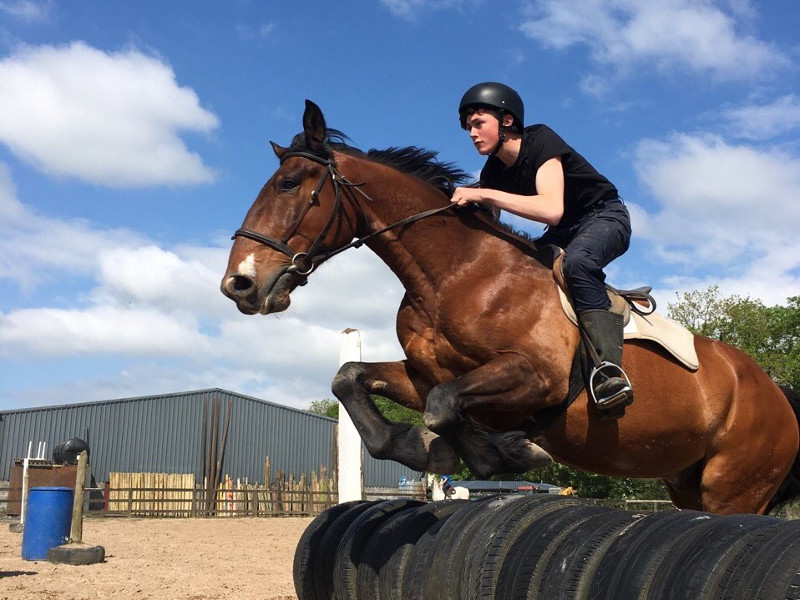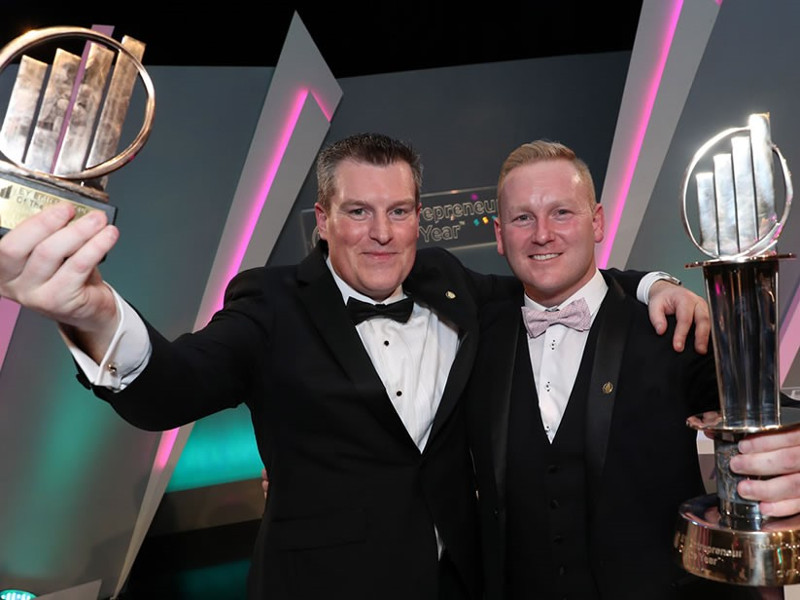WaytoB was started by Robbie Fryers and Talita Holzer when both were studying in TCD. The company has a great purpose and here Robbie discusses the journey to date.
Why did you start WaytoB?
WaytoB started when we were in fourth year in Trinity. Whilst taking part in the innovation in product development module, we were given the challenge to ‘integrate people with intellectual disabilities into society’. We interviewed hundreds of people and our findings revealed one recurring issue; difficulty with travelling independently. A quote that stuck with us was when during one of our early interviews, a parent spoke of their concern that their kid wouldn’t be able to go to Croke Park when they passed away. Wearables had just started to become mainstream at the time and we had good idea and the skills to execute it.
Do anything different?
Looking back now, there are probably quite a lot of things we could have changed but hindsight is always 20/20 and this was our first crack at the start-up world. I think the main thing we did wrong was our approach to testing early prototypes. We had individuals scattered all over, which made gathering feedback pretty inefficient. At the time I had to physically go to testers houses to update the app and install things, which looking back was pretty insane.
“We interviewed hundreds of people and our findings revealed one recurring issue; difficulty with travelling independently”
Challenges
I think funding was probably the biggest challenge, as it is for most early stage companies. We are trying to have as much social impact as possible but also have a sustainable business, which is sometimes difficult to convince people. We were extremely fortunate that we had the support of some key individuals in both TCD and Enterprise Ireland, that we were able to bring in the money we needed to start. Gaining people’s respect was also a big challenge at the start because we are both so young and we didn’t really have a portfolio of successes to back up our word. I think winning a few high-profile awards really helped with that and once people saw that we were pretty good at delivering things on our roadmap in time, that sort of went away.
Supports
With the help of some academic staff in Trinity, we were able to secure a research grant back in 2016 to conduct a proof of concept trial with a small cohort. This was essential to proving the need for the product and the potential benefit it could bring to end users. Proceeding that, we got considerable financial backing via Enterprise Ireland through the commercialisation programme, which really allowed us to take the product to the near market ready solution we have today.
“Gaining people’s respect was also a big challenge at the start because we are both so young and we didn’t really have a portfolio of successes to back up our word”
Website development
We came up with the initial idea in early 2015, and we had a (very) basic prototype by the summer of 2015 which allowed us to get some initial feedback on the UI and user experience. We believe strongly in the user centred design philosophy and as a result, we iterate and tweak the app quite often, based on our end users’ feedback. I think we had developed about 13 prototypes before a first trial with an organisation. Since then we have added a lot of features, getting new testers is so important for us as each new user brings their own unique insights. Just last week, a new user informed us that holding their arm parallel to the body was awkward for them, so we started working on compass ‘zeroing’ feature that lets users hold their watch at an angle and we can still figure out the right direction to give them.
Success
We have also been lucky enough to win several high-profile awards since starting the company, all of which have been crucial in their own way. Winning the AbilityNet Tech4Good awards helped our exposure hugely in the UK, and we were able to create relationships with several city councils as a result. Similarly, the Irish James Dyson Award gave us huge exposure to users in Ireland, which would have otherwise taken a substantial marketing campaign to get that kind of reach. Outside of Ireland and the UK, winning the World Summit Award and participating in the EIT health validator accelerator program allowed us to gain insight on the problem from both a European and global context.
“It is great to see the start-up community thriving, but also the increasing numbers of entrepreneurs who are getting involved in social entrepreneurship”
Irish start-up scene
It is great to see the start-up community thriving, but also the increasing numbers of entrepreneurs who are getting involved in social entrepreneurship. In terms of diversity and inclusion, our friends at Access Earth are making great progress on their mission to make accessibility from information businesses more readily available to those who need it, but they are just one of many.
Advice
I would advise anyone to try and meet as many other social entrepreneurs as possible and to be confident in what they are doing. I think people with great ideas for a social enterprise find it difficult to think of a sustainable business plan for their idea and a lot of times let their idea die. For us personally, being around others who are a little but further ahead gives you belief to keep taking your business to the next stage.
Interview by Barry Walsh
Published: 1 November, 2019






